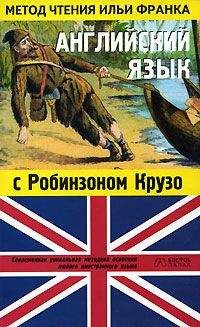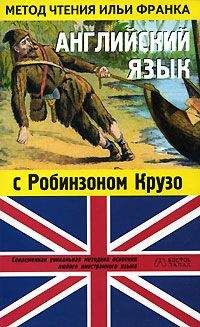After dinner it was my custom to go out for a stroll. How proud I was of my little kingdom!
If you had seen me then, you would not have laughed. You would have been frightened. For a stranger-looking fellow you never saw.
Be pleased to take a picture of me.
On my head was a big cap made of goatskin. It was very tall and without shape. A flap hung down from the back of it to keep the rain off my neck.
I wore a short jacket of goatskin and a pair of knee breeches of the same.
I had neither stockings nor shoes. But I wore around my legs and feet some queer things that I called buskins. They were made of goatskin, too, and were of great use when walking among briers or stones.
Around my waist I had a broad belt of rawhide. I had no need of sword or dagger; and so I carried in this belt a little saw and a hatchet.
Another belt, which hung over my shoulder, held my powderhorn and shot pouch.
On my back was slung a basket. On my shoulder was my gun. Above my head I carried my great clumsy, ugly umbrella.
My face was as dark as mahogany. It was tanned by the sun and browned by the hot winds.
My beard was at one time a yard long. But I soon grew tired of it and cut it pretty short. Yet even then it looked grizzly enough, I assure you.
It is not a very handsome picture, is it?
But do not blame me. I dressed as well as I could. I kept myself clean. I tried to be worthy of respect, even though no one saw me.
I looked over my little kingdom and was proud and happy.
You would have laughed to see me and my family when dinner time came.
First there was myself, Robinson Crusoe, king of the island. I was the lord of everything I could see.
Then, like a king, I dined alone, with my servants looking on.
No one was allowed to talk to me but Poll Parrot, who sat on the back of my chair and waited for what I would give him.
My dog was now so old and feeble that he could hardly stir. He sat always at my right hand and wagged his tail if I did but snap my finger.
My two cats waited, one on each side of the table, to see what I would give them.
These two cats were not the same that I had brought from the ship. Those were dead, long ago, of old age. But they had left many kittens.
Indeed, there had come to be so many cats that I was forced to drive them away. All but these two had gone into the woods and become very wild.
I LEARN TO BAKE AND AM PROSPEROUS
(я учусь печь, и я процветаю; prosperous — процветающий, преуспевающий; удачливый)
I HAVE already told you about farming (я уже рассказал вам о фермерстве), and of the difficulties under which I did my work (и о сложностях, с которыми: «под которыми» я делал свою работу = которые возникали в моей работе). The thing which I wished to do most of all to make good bread (вещь, которую я хотел сделать больше всего, — сделать хороший хлеб).
I tried many plans, but it was several years before I could think of myself as a really good baker (я испробовал много планов, но прошло несколько лет, прежде чем я мог думать о себе как о действительно хорошем пекаре = считать себя действительно хорошим пекарем).
My barley was very fine (мой ячмень был очень хорош). The grains were large and smooth (зерна были большими и гладкими). When boiled a long time with a bit of goat's meat (при варке в течение долгого времени с куском козьего мяса), they made good food (они были хорошей едой: «делали = составляли хорошую еду»).
But they did not take the place of bread (но они не заменяли: «не занимали место» хлеба). Before bread could be made, the grains of barley must be ground into meal (прежде чем хлеб может быть сделан, зерна ячменя должны быть помолоты в муку; to grind — молоть, перемалывать; растирать /в порошок/; толочь).
I tried pounding them with a stone (я пытался растирать их камнем; to pound — бить, колотить; толочь). But that was slow work (но то была медленная работа). The stone crumbled into sand (камень рассыпался в песок; to crumble— сыпаться, осыпаться; обваливаться). My meal was worth nothing (такая еда не стоила ничего: «была стоящей ничего»).
I looked all over the island for a harder stone (я обыскал весь остров /в поисках/ более твердого камня). All were alike (все были одинаковыми; alike — одинаковый; идентичный, подобный, похожий, тождественный).
So at last I cut a large block of very hard wood (в конце концов я срезал большой кусок очень крепкой древесины). I rounded it on the outside with my hatchet (я закруглил его снаружи топориком). Then, partly by chopping (затем частично рубкой), partly by burning (частично выжиганием), I made a hollow place in the end of it (я сделал полость на конце его).
Out of a piece of ironwood (из куска железного дерева; ironwood — "железное" дерево /термин употребляется для различных древесных пород с твердой тяжелой древесиной/) I made a heavy pestle or beater (я сделал тяжелый пестик, или колотушку).
I had now a very good little mill (теперь у меня была очень хорошая мельница). In a short time I had crushed enough barley to make meal for a large loaf (в короткое время я размолол достаточно ячменя, чтобы сделать муку для большой буханки; loaf — буханка, каравай; булка, батон /порция испеченного хлеба/).
It was easy to make the dough (было легко сделать тесто). I had only to mix the meal with water and knead it with my hands (мне нужно было лишь смешать муку с водой и размять ее руками). I must not think of yeast to make the dough light (мне не приходилось думать о дрожжах, чтобы сделать тесто легким; light — легкий; /кул./ хорошо поднявшийся, легкий, воздушный /о тесте/).
The baking part was the main thing (выпекание было основным делом), and the hardest to learn (и самым сложным, чтобы научиться = и ему труднее всего было научиться).
At first I put my biscuits of dough in the hot ashes (вначале я клал куски теста в горячие угли) and left them there till they were baked (и оставлял их там, пока не испекутся). But I did not like these ash cakes very well (но мне не нравились эти пироги с золой).
Then I tried another plan (потом я попробовал иной план = попробовал сделать по-другому).
I made two large earthen vessels (я сделал два больших глиняных сосуда; vessel — сосуд /для жидкости/; корабль, судно). They were broad and shallow (они были широкими и неглубокими: «мелкими»). Each was about two feet across and not more than nine inches deep (каждый был около двух футов в ширину и не более девяти дюймов в глубину).
These I burned in the fire (их я обжег на огне) till they were as hard as rocks and as red as tiles (пока они не стали твердыми, как камни, и красными, как черепица).
I made also a hearth before my fireplace (я соорудил также /специальный/ очаг перед местом костра; hearth/fireplace — очаг; камин), and paved it with some square tiles of my own making (и выложил его квадратными черепицами моего собственного изготовления). But, perhaps I ought not to call them square (но, возможно, не стоит их называть квадратными: «я не должен бы…»).
The hearth, when finished, was quite level and smooth (очаг, когда был завершен, был довольно ровным и гладким). It was as pretty as I could have wished (он был таким красивым, как я мог желать).
Next I built a great fire of hard wood (затем я развел большой огонь/костер из твердой древесины). When the wood had burned down (когда дерево прогорело), I raked the hot coals out upon my hearth (я выгреб /из костра/ угли на мой очаг). I left them there till the hearth was hot through and through (я оставил их там, пока очаг не прогрелся основательно).
My loaves of dough were all ready (куски теста были готовы). I swept hearth clean (я вымел очаг дочиста; to sweep — мести) and then put the loaves down upon the hottest part of it (и затем положил куски на самую горячую его часть).
Over each loaf I put one of the large earthen vessels I had made (над каждой буханкой я поставил один из больших глиняных сосудов, которые я сделал). Then I heaped hot coals on the top of the vessel (затем я наложил горячие угли поверх каждого сосуда; to heap — бросать в кучу, складывать в кучу, нагромождать) and all round the sides of it (и вокруг его боков = обложил углями его бока).
In a short time I lifted the vessels and took out my loaves (через короткое время я поднял сосуды и вынул мои буханки; to take out — вынимать). They were baked as well as the best oven in the world could have baked them (они были выпечены так, как лучшая печка в мире выпекла бы их).
By trying and trying again (пробуя/пытаясь вновь и вновь), I at last learned to bake almost everything I wanted (я наконец научился печь почти все, что я хотел). I baked cakes and rice pudding fit for a king (я пек лепешки и рисовый пудинг, годные/подходящие для короля). But I did not care for pies (но я не заботился о пирогах = был равнодушен к пирогам).
I now felt quite contented and prosperous (теперь я чувствовал себя удовлетворенным и процветающим). For did I not have everything that I needed (ибо разве у меня не было всего, что мне нужно)?
I had two homes on the island (у меня было два дома на острове). I called them my plantations (я называл их моими плантациями).
The first of these was my strong castle under the rock (первым из них был мой крепкий замок под скалой). I had enlarged it until my cave contained many rooms (я расширял его, пока моя пещера не стала содержать много комнат), one opening into another (открывающихся = выходящих одна в другую).
The largest and driest of these was my storeroom (самая большая и самая сухая из них была складская комната; dry — сухой; store — склад). Here I kept the largest of my earthen pots (здесь я держал/хранил самые большие из моих глиняных горшков; to keep — хранить; сохранять). Here also were fourteen or fifteen big baskets (здесь были также четырнадцать или пятнадцать больших корзин), all filled with grain (наполненных зерном).
My sitting room was not large (зал был не большим; sitting room — гостиная), but it was made for comfort (но он был сделан для комфорта = обустроен удобно).
As for the wall in front of the castle (что касается стены перед замком), it was a wonderful thing (это была удивительная вещь). The long stakes which I had driven down had all taken root (длинные колья, которые я вбил, все укоренились: «взяли корень»). They had grown like trees (они выросли, как деревья), and were now so big and so thick with branches that it was hard to see between them (и были сейчас такими большими и такими толстыми, с /такими/ ветвями, что было сложно видеть /что-либо/ между ними).



